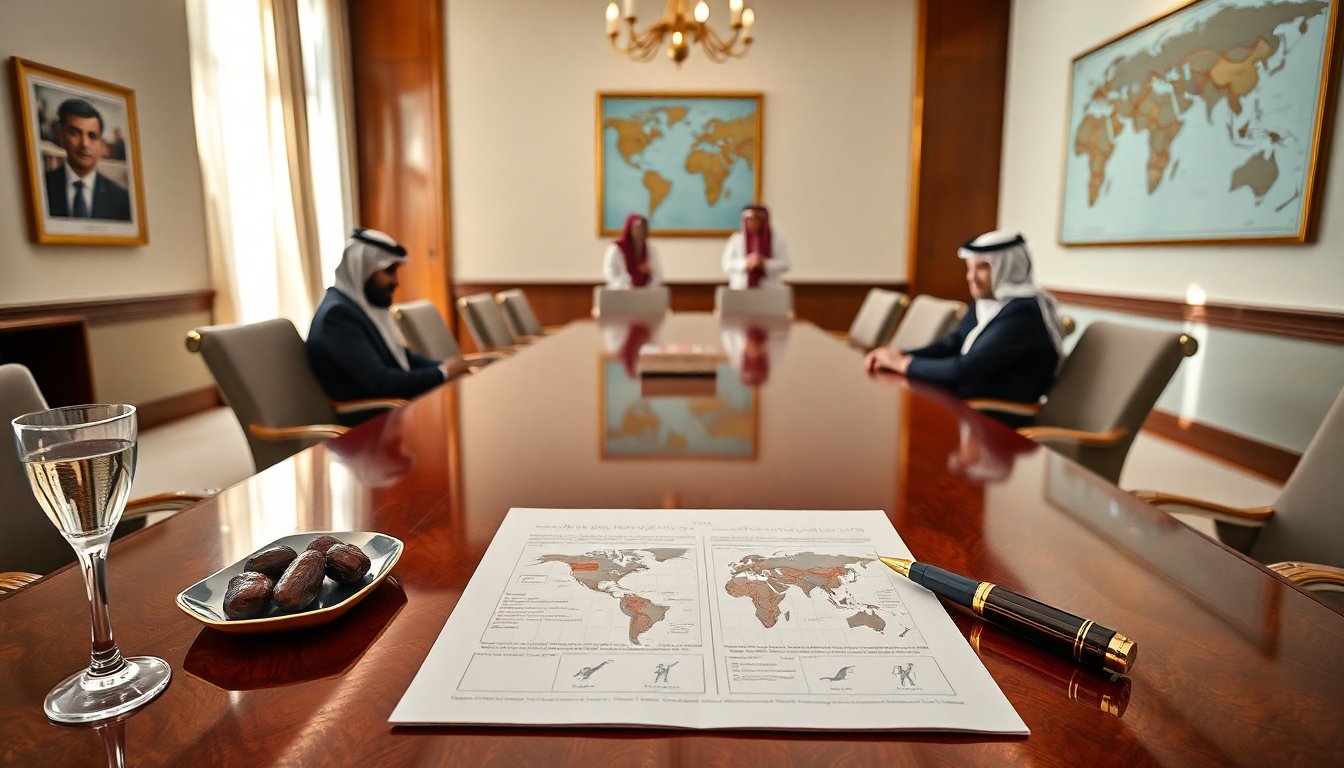Table of Contents
Qatar’s Diplomatic Role Amid Rising Tensions
The recent diplomatic efforts of Qatar’s Prime Minister, Sheikh Mohammed bin Abdulrahman bin Jassim Al Thani, underscore Qatar’s significant influence in the Middle East. Following a controversial Israeli airstrike in Doha that resulted in tragic casualties, including a Qatari security official and several Hamas members, Sheikh Mohammed’s discussions with high-ranking US officials reflect the urgency to address escalating tensions. These meetings are part of a broader strategy aimed at navigating the complexities of Middle Eastern politics.
Context of Diplomatic Engagements
Sheikh Mohammed’s visit to the United States coincides with a challenging geopolitical landscape. The Israeli airstrike, targeting a Hamas meeting in Doha, appears to disrupt ongoing ceasefire negotiations. This incident has drawn substantial international scrutiny, prompting US officials to reevaluate their positions regarding both Israel and Qatar. The Prime Minister’s discussions with President Donald Trump, Vice President JD Vance, and Secretary of State Marco Rubio are critical, focusing on recent provocations and their implications for US-Qatar relations.
Qatar’s strategic importance to the US is highlighted by its hosting of the Al Udeid airbase, a vital hub for American military operations in the region. Consequently, the relationship between the two nations remains crucial, particularly amid Israel’s actions that complicate diplomatic efforts. While the US has traditionally supported Israel, recent attacks on Qatar have raised questions about the stability of this alliance.
Implications for US-Qatar Relations
The meetings in Washington serve not only as a response to the immediate crisis but also as a platform for ongoing discussions about long-term security arrangements between the US and Qatar. These conversations are expected to explore strategies to mitigate the fallout from Israel’s actions while reinforcing the mutual interests of both nations. Reports indicate that Trump expressed dissatisfaction with Israel’s recent conduct, signaling the US’s intention to maintain its partnership with Qatar despite rising tensions.
Furthermore, these high-level discussions are likely to lay the groundwork for future diplomatic efforts aimed at balancing support for Israel with addressing the concerns of Gulf allies. The US’s condemnation of the Israeli strike during a UN Security Council meeting suggests a potential shift in its approach to Middle Eastern diplomacy, emphasizing the need for collaborative efforts to promote peace and stability in the region.
Future Prospects and Regional Stability
The upcoming meetings in Israel, where Secretary Rubio is expected to reaffirm US commitments, will further clarify the US’s position in this complex conflict. As the international community increasingly advocates for a two-state solution, Qatar’s role as a mediator could become more significant. With France and Saudi Arabia calling for collective action to resolve the ongoing crisis, Qatar’s diplomatic initiatives may prove essential in shaping future peace processes.
The situation remains fluid, and the outcomes of these discussions will have lasting implications for the regional landscape. Sheikh Mohammed’s proactive diplomatic efforts illustrate Qatar’s ambition to de-escalate tensions and facilitate dialogue among conflicting parties. As global attention turns to these high-level meetings, their implications could redefine alliances and strategies within the Middle Eastern geopolitical framework.


